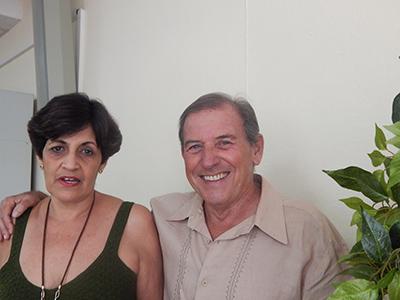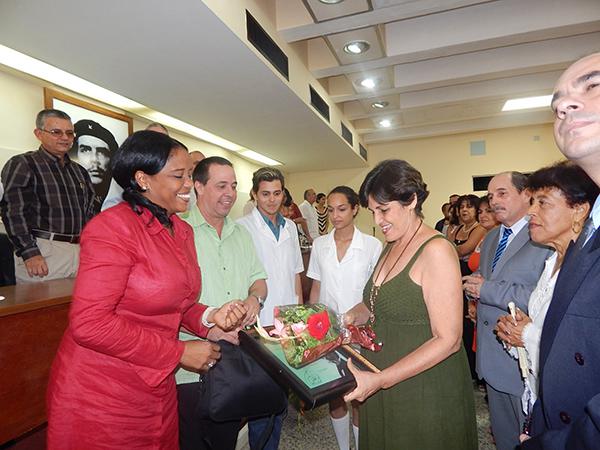
Love and a profession hold together the marriage of Jorge Bergado Rosado and Margarita Baez Martín, who both work as researchers at the International Center of Neurological Restoration (CIREN) in Havana.
Jorge studies neuroplasticity in animal models as a tool focused on the properties of the central nervous system: “My investigations are aimed at the analysis of emotions and motivations as factors contributing to the restoration of cells and tissues in the brain. We look for brain structures involved in the organic processes, which allow communication between the affective and cognitive spheres,” Jorge, PhD in neurophysiology and a biologist by profession, explains.
As a doctor, Margarita is involved in brain surgery to treat Parkinson’s disease and responsible for the neurophysiologic evaluation of patients before and after surgery, looking for any possible side effects or collateral damage in the sensory systems, particularly the visual and auditory.
Both have the pleasure of obtaining important results for humankind and see their family as providing the essential support for their dedication to their work, especially now that their daughter Grechen has graduated with a degree in biochemistry and works at the Center of Molecular Immunology.
“We understand each other in the productive routine of preparing classes, reports of scientific results, presentations of topics, or writing articles; we organize ourselves to cooperate with each other as necessary,” Jorge explains.
He assures that he has no preferences in regards to teaching and research, “Both give me much enjoyment, I get my undergraduate or graduate students involved in the scientific projects, I explain the methods and results achieved in the classroom, I receive ideas from my students to work on in the investigations,” he adds, emphasizing that this logic is practiced in Cuba as standard policy between universities and specialized centers.
These two Cuban scientists enjoy government support to undertake experiments via state budget allocations, promotion of the experiences substantiated by their research, and the technological support necessary to undertake studies calling for absolute accuracy.

“The opening of CIREN in 1989,” Jorge notes, “created a space in which to develop our talent with medical assistance for people in need of specialized neurological treatment. Our work has never been interrupted, not even in the nineties when the country suffered from the collapse of the socialist bloc and the tightening of the unjust U.S. economic, commercial and financial blockade, which led to an intense period of economic crisis.”
However, the cruel policy imposed by the United States for over 50 years hinders the normal course of scientific developments.
“In 2000, we acquired a computer through a Spanish company for the continuous monitoring of behavior in animals. The machine aged and we needed to change it, we also wanted to update the software. We got in touch with the suppliers and they told us that the company had been acquired by a U.S. counterpart and was unable to sell us anything,” Jorge explained.
CIREN, an institution dedicated to neuroscience, has a rigorously organized infrastructure for research, clinical and non-clinical services, as well as modern and comfortable hospital facilities, equipped with state of the art technology and instruments, highly qualified professionals and characteristic warmth and affection for patients. Work here has never stopped, thanks to the many innovations of the collective to solve material shortages, which have led to scientific results of global impact.
On more than 14 occasions, the Bergado-Baez family has received the Annual Health Prize, awarded in recognition of the introduction, production and extension of innovations in medical and surgical care.
For them, working in the sciences generates social commitment and responsibility. They see the future of Cuba in the men and women who devote themselves to the worthy task of alleviating human ailments.















